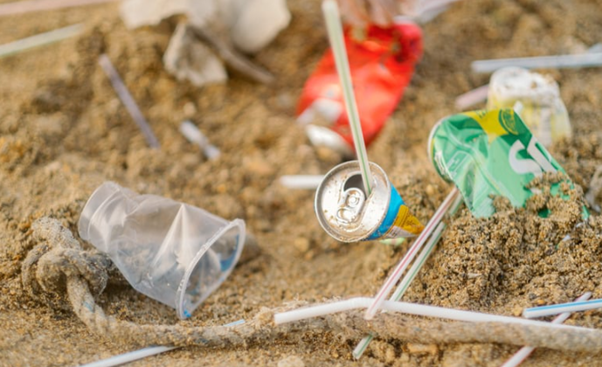Do Biodegradable Plastics Encourage Littering?
Caroline Randall
Marketing Manager

A Critical Review: Unpacking the Paradox
A comprehensive new report published by BB-REG-NET reveals no robust evidence to support the long-held claim that biodegradable plastics encourage littering, challenging a key assumption that has been hindering policy development in the UK’s bioeconomy sector.
The report, “Do Biodegradable Plastics Encourage Littering? A Critical Review: Unpacking the Paradox,” examines the perceived link between biodegradable materials and littering behaviour through a systematic analysis of existing research and observational data. The findings indicate that littering behaviour is primarily driven by convenience and situational factors, rather than the material properties of the items.
Extensive analysis of littering patterns shows that paper and cardboard – widely recognised as biodegradable materials – are not littered at higher rates than non-biodegradable materials like plastic or metal. Instead, item size appears to be a greater determinant of littering than biodegradability, with smaller items more likely to be discarded regardless of their material composition.
Polly-Ann Hanson, Consultant at Alder BioInsights and the report’s lead author commented: “We were challenged with the view that increasing the use of biodegradable materials would lead to an increase in litter. Through our structured review, we found this concern was based on limited focus group discussions and surveys about attitudes rather than actual behaviour. Our analysis of UK litter data suggests that littering is largely independent of material type, indicating that increased use of biodegradable materials would not lead to more littering.”
The report identifies that this unfounded perception is acting as a barrier to the development of policies and regulations that could stimulate growth in the UK bioeconomy, which has potential to generate £204 billion in annual revenue while advancing Net Zero goals.
The report finds that the UK Government’s concerns about biodegradable plastics increasing littering were based on limited evidence. The information the Government cited in response to its 2021 consultation on bio-based and biodegradable plastics was largely anecdotal, drawn from limited studies or misinterpreted research.
More recent research suggests perceived biodegradability plays a minimal role in littering behaviour. A study by Zero Waste Scotland found that belief in products’ rapid decomposition ranked among the lowest drivers of littering, with factors like convenience, social norms, and location having far greater influence.
Adrian Higson, Managing Director of Alder BioInsights added: “In the context of the UK’s bioeconomy, linking biodegradable materials with litter is a red herring. These materials should not be mistaken as a solution to littering, nor should litter concerns be overstated – as this evidence review makes clear.
“UK policy must focus on the real benefits and potential of biodegradable materials within a modern waste management system, rather than be held back by misplaced fears of increased littering rates.”
The report emphasises that biodegradable materials should not provide a licence to litter. It recommends that, unless specifically related to disposal (such as biodegradable mulch films or personal care products), products should not be labelled or marketed as biodegradable. Instead, consumer messaging should focus on the principle that “no packaging belongs in the environment.”
Jen Vanderhoven, Chief Operating Officer for the Bio-based and Biodegradable Industries Association, added: “While concerns about biodegradable plastics encouraging littering have circulated for years, there is currently no robust evidence to support this assumption. The narrative is largely built on perception rather than proof. What’s clear, however, is that no packaging – biodegradable or otherwise – belongs in the environment. Clear labelling and accurate marketing are essential to guide responsible disposal and avoid confusion.”
To find out more click here



